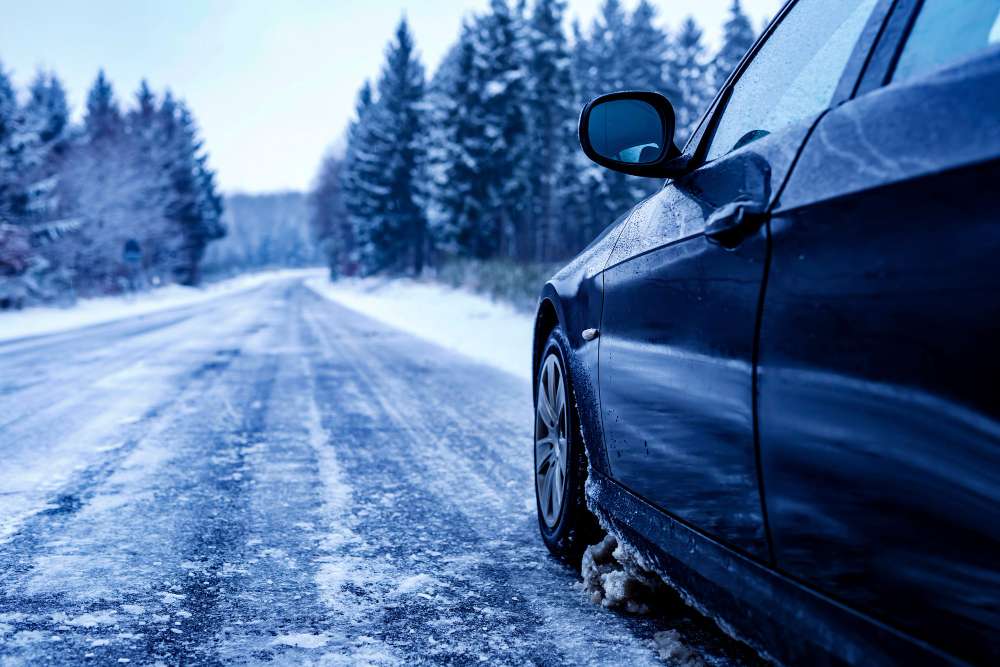
Winter can be unforgiving, with snow, ice, and freezing temperatures presenting significant challenges, especially for your vehicle. Preparing your car for the cold weather is essential to ensuring it runs smoothly and safely throughout winter. From simple tasks to more comprehensive maintenance, taking the time to winterize your car can save you from unwanted breakdowns and potential accidents. This blog will provide a comprehensive guide with winter maintenance tips to keep your vehicle in good condition during the colder months.
1. Check and maintain the battery:
The cold weather can significantly affect your car's battery, reducing its effectiveness. Ensure that the battery terminals are clean and tight. If your battery is more than three years old, consider having it tested and, if necessary, replaced to avoid any unexpected failures during winter.
2. Inspect the tires
Your tires are crucial for traction and control on icy or snow-covered roads. Check the tire pressure regularly, as it tends to drop as the temperature falls. Additionally, consider switching to winter tires for improved grip and stability in adverse weather conditions.
3. Check the brakes
Efficient brakes are essential for safe driving in winter. Have your brakes inspected to ensure they are functioning correctly. Replace worn brake pads or discs, if needed, and remember that stopping distances can be longer in icy conditions.
4. Replace windshield wipers and fluids
Maintaining visibility is crucial for safe driving during the winter. Replace your windshield wipers if they are old or not working effectively. Also, use winter-grade windshield washer fluid to prevent it from freezing on the windshield.
5. Check the heating system
Your car's heating system keeps you warm during cold weather. Test the heating and defrosting functions to ensure they are working correctly. If you notice any issues, have them repaired before the temperatures plummet.
6. Inspect the lights
With fewer daylight hours during the winter, proper lighting on your vehicle is essential. Check all exterior lights, including headlights, brake lights, and turn signals, to ensure they work correctly. Replace any burned-out bulbs promptly.
7. Monitor the Coolant System
Ensure that your car's coolant mixture is appropriate for colder temperatures. It's recommended to have a 50/50 mix of antifreeze and water in the radiator to prevent the coolant from freezing.
8. Examine the oil and oil filter
Cold weather can cause your vehicle's oil to thicken, making it harder for the engine to turn over. Consider using a thinner oil grade during the winter, and always ensure the oil and oil filter are clean and in good condition.
9. Keep a Winter Emergency Kit
Prepare for the unexpected by having a winter emergency kit in your car. Include items such as blankets, extra clothing, a flashlight, batteries, a snow shovel, a first aid kit, and non-perishable food and water.
10. Regularly check fluid levels
Check all essential fluid levels regularly, including transmission, brake, power steering, and windshield fluids. Top them off as needed to ensure your vehicle functions optimally.
11. Protect the exterior
Winter road treatments like salt and brine can be harsh on your car's exterior. Wash your car frequently to remove these corrosive substances, and apply a protective wax coating to shield the paint.
12. Inspect belts and hoses
Cold temperatures can cause belts and hoses to become brittle and prone to cracking. Have a mechanic inspect them for signs of wear and replace them if necessary.
By following these winter maintenance tips and investing time in preparing your car for cold weather, you can ensure a safer and more comfortable driving experience during the winter months. Regular maintenance and a proactive approach to vehicle care are crucial to keeping you and your loved ones safe on the road, regardless of the weather outside. Stay safe and enjoy the beauty of winter while keeping your car in top shape!